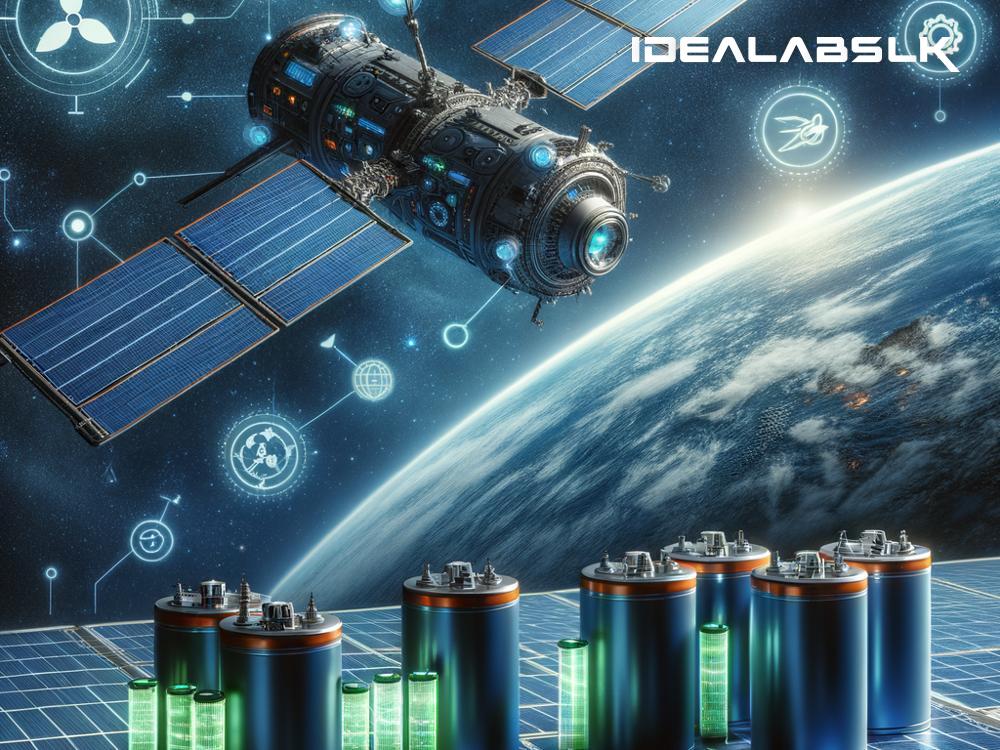How Space Exploration Will Drive Advances in Energy Storage and Sustainability by 2025
As we continue to reach for the stars, something remarkable is happening closer to home. Space exploration is not just about discovering new planets and galaxies; it's also driving technology forward in ways that could significantly impact our lives here on Earth, particularly in the fields of energy storage and sustainability. By 2025, initiatives in space exploration could fundamentally change how we think about and use energy, making our planet greener and more energy-efficient.
Space: The New Frontier for Energy Innovation
Space missions have always required cutting-edge technology to succeed. Energy storage is paramount in space because there's no room for error millions of miles from Earth. Every spacecraft, satellite, or rover must rely on highly efficient and durable energy sources to operate. This necessity pushes space agencies and private companies to innovate, developing energy storage solutions that are far more advanced than what we currently have on Earth.
The Power of the Sun
Solar power plays a massive role in space missions. The International Space Station (ISS), for example, uses solar panels to generate electricity. These panels are far more efficient than most found on Earth because they need to be lightweight, robust, and exceptionally efficient to be viable in space. The technology behind these panels is steadily trickling down to Earth, paving the way for more efficient solar power solutions for our homes and industries. By 2025, we can expect solar panels inspired by space technology to become more affordable and widespread, contributing significantly to global sustainability efforts.
Revolutionary Battery Technology
In space, storing the energy generated by solar panels is just as crucial as generating it. This has led to major advancements in battery technology. Space exploration demands batteries that are lightweight, compact, have a high energy density, and can withstand extreme conditions. These needs drive the development of batteries that could soon revolutionize how we store energy on Earth. Imagine electric cars that can go much farther on a single charge or smartphones that need to be charged just once a week. By 2025, such advancements could become a reality, making our use of energy much more efficient.
The Search for New Energy Sources
Space exploration also expands the search for new energy sources. One exciting prospect is Helium-3, a rare isotope on Earth that could potentially provide a cleaner, safer form of nuclear energy. The Moon holds significant reserves of Helium-3, and though mining it is currently science fiction, the idea spurs research into alternative energy sources and advanced nuclear technologies. By pushing the boundaries of what's possible, space exploration could help us find new ways to power our planet without harming the environment.
Sustainability in the Void
Sustainability is not just an Earthly concern; it's crucial in space too. Space missions must be incredibly resource-efficient, recycling and minimizing waste in ways we've only begun to explore on Earth. The closed-loop systems developed for space habitats, which recycle air and water and maximize efficiency, provide a model for sustainable living that could transform our cities by 2025. These systems could lead to advances in water recycling and air purification technologies, making our urban environments cleaner and more sustainable.
A Greener Earth Inspired by the Stars
The most exciting aspect of how space exploration is driving advances in energy storage and sustainability is the ripple effect it has on our planet. As governments and private entities pour resources into exploring the cosmos, the technology they develop doesn't stay in space. It trickles down to Earth, where it can have profound impacts on how we live our lives. By 2025, we may see homes powered by solar panels as efficient as those on the ISS, cars powered by batteries that last weeks instead of hours, and cities that recycle resources as efficiently as a space habitat.
Space exploration is about more than just the final frontier. It's about pushing the boundaries of what's possible, not just out there in the cosmos, but here at home. Advances in energy storage and sustainability are just some of the ways that reaching for the stars will help us to create a greener, more sustainable Earth. By 2025, we're likely to see these changes starting to take shape, making the future a brighter place for all of us.

